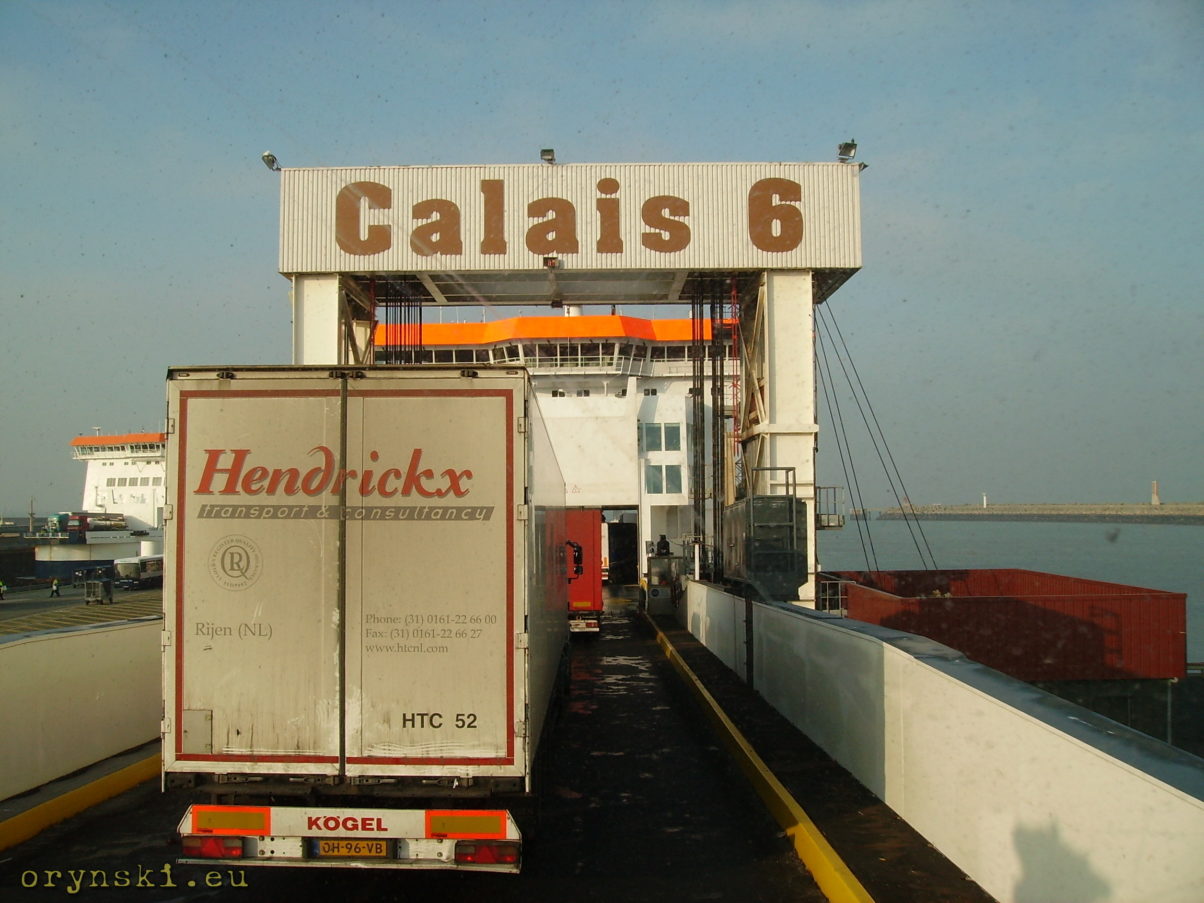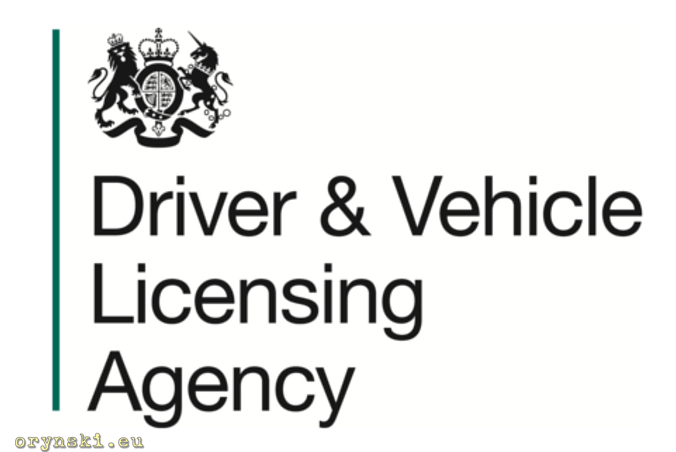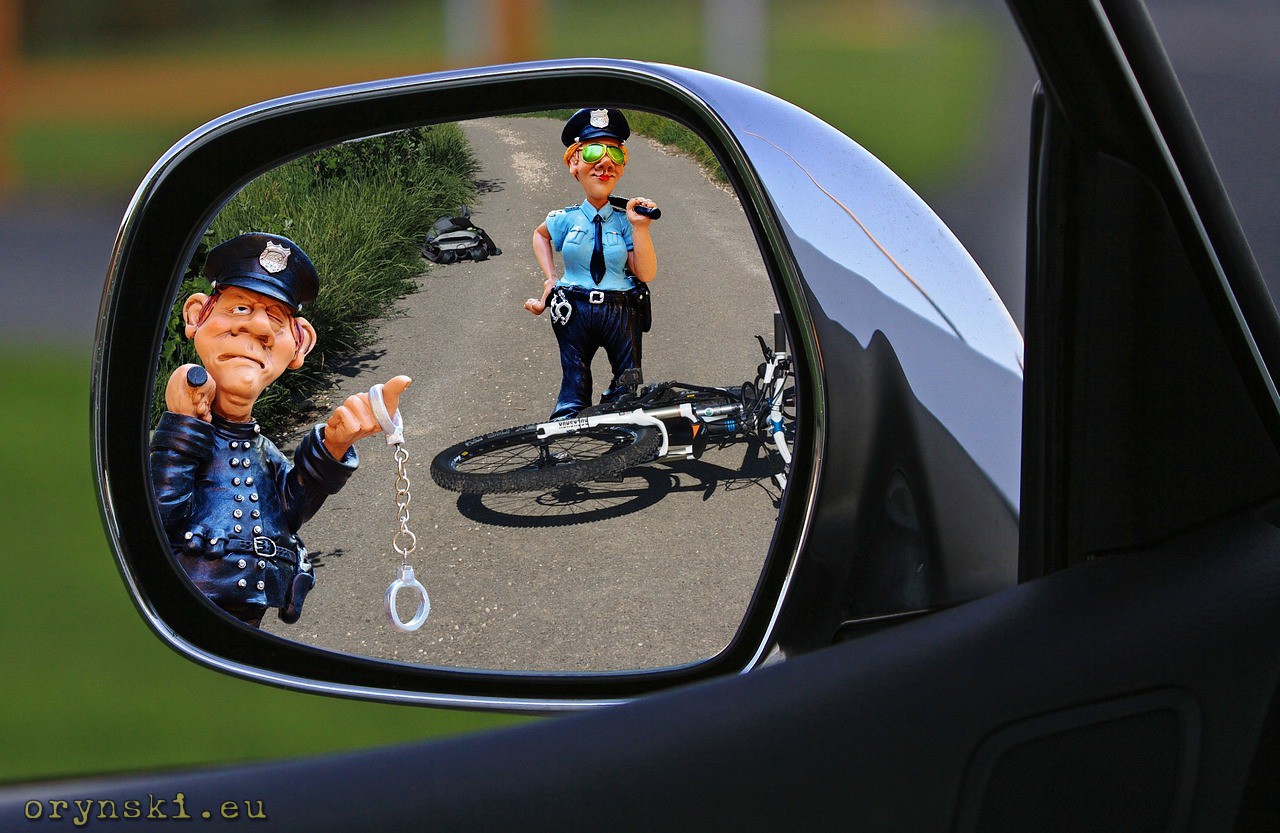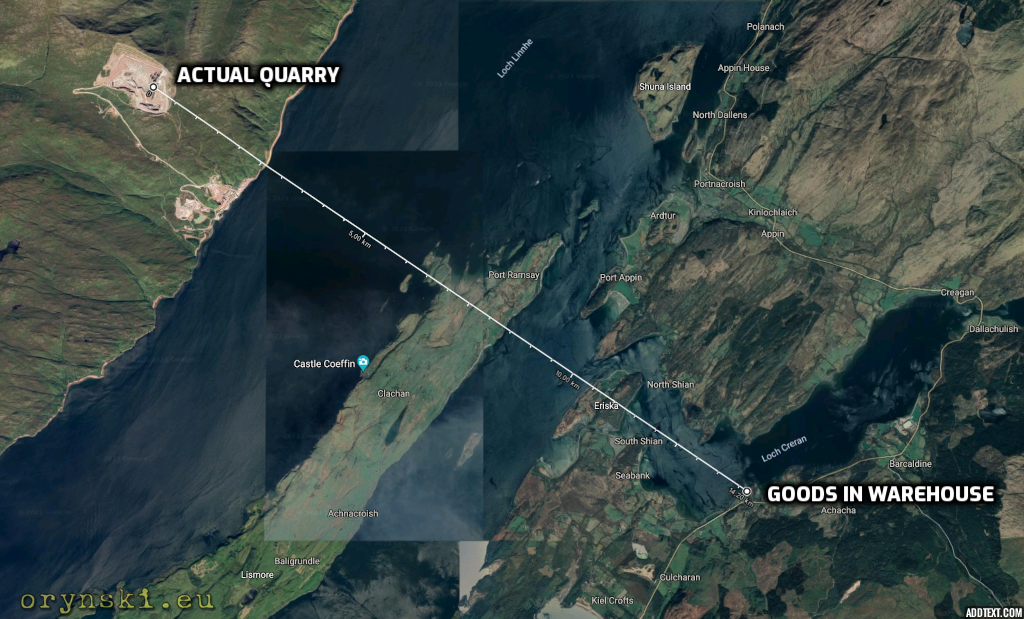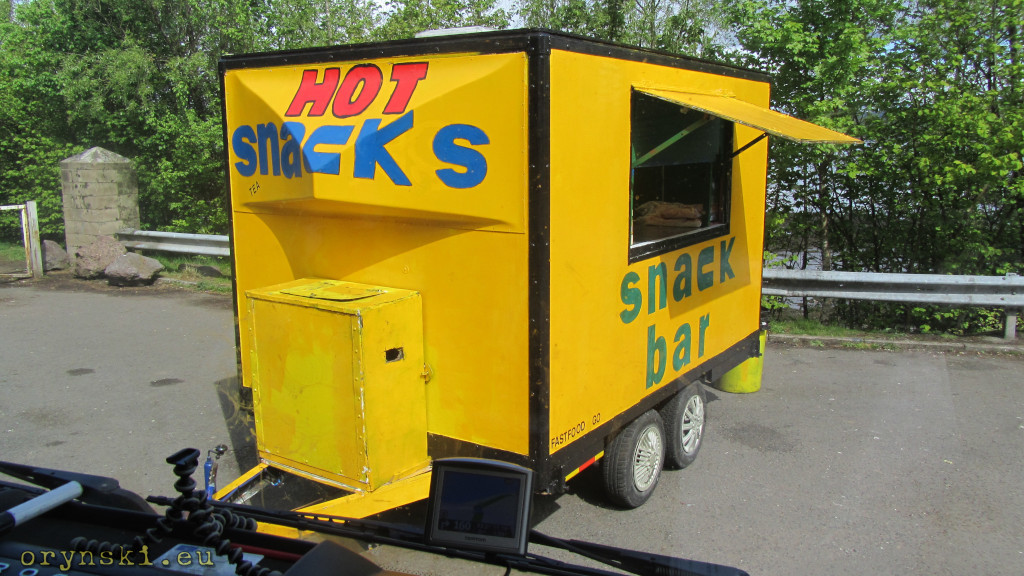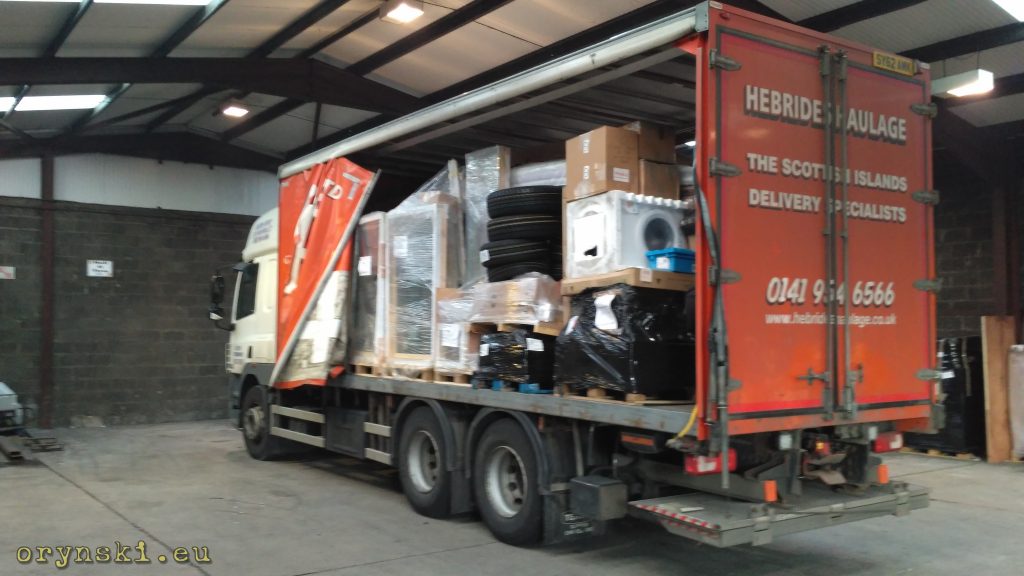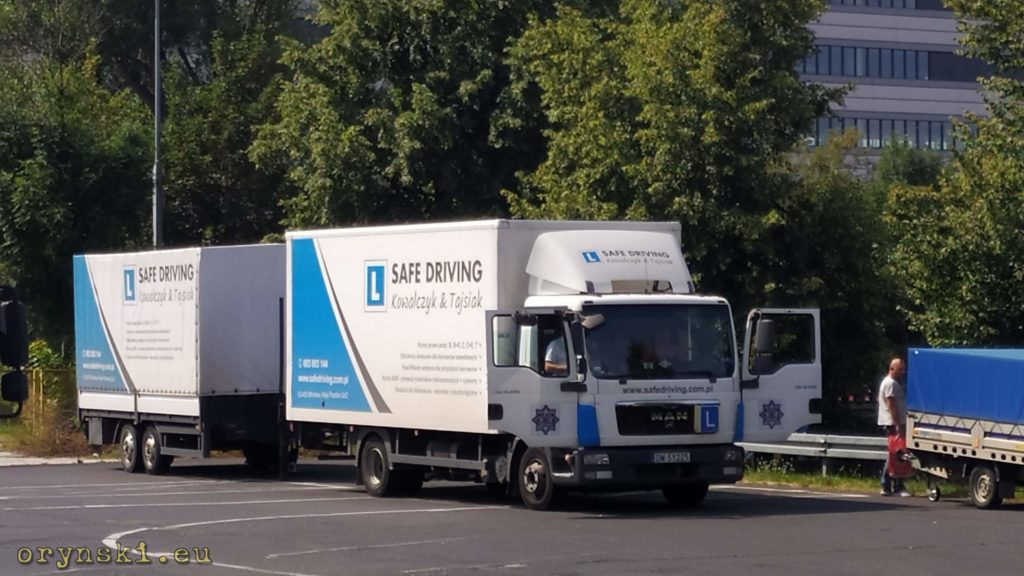Thousands of people who shop in the UK probably noticed shortages of products in British supermarkets. The supply problems are blamed on the shortage of HGV drivers and the government is taking steps to tackle it: the driving hours have been extended and there is a talk about bringing the army drivers to help with the supermarket deliveries. While “the shortage of drivers” have been talked over by the press in the UK for as long as I remember, this time the situation is serious. So what are the reason for that situation and are the reasons quoted by the government (COVID etc.) really the issue?
This is my subjective list of the reasons why there are not enough drivers in the UK. The list might not be exhaustive, so feel free to add your own observations in the comments. The order is random, although I divided the reasons into 4 groups.
GROUP A: REASONS WHY EUROPEAN TRUCKS NOT COMING HERE AS MUCH AS THEY USED TO.
1. Brexit itself.
Let’s get that one out of the way straight away. British imports and exports plunged in the months after Brexit. We initially haven’t noticed it thanks to the stockpiling, but Britain started to run out of its stock. And even if not, the stock still needs to be transported. The EU trucks were responsible for a lot of internal UK transport thanks to cabotage rules. What does it mean? Imagine you are arriving in your German truck and unload your cargo in Coventry. Then you have to load the cargo going back to Germany in Glasgow. To avoid driving empty all the way from Midlands to Scotland you pick a load going that way, for example from a big distribution centre in Birmingham to a supermarket distribution centre in Scottish central belt.
With fewer EU trucks on British roads, fewer loads can travel on them. That means Britain needs more British trucks (and drivers!) to fulfil its internal transport needs.
2. Brexit’s red tape.
With Britain being out of the European Union now, the incoming trucks need to deal with custom clearances and border controls. This takes time, especially if the country is completely unprepared for it. Unlike, for example, Switzerland or Norway, Britain lacks the facilities and trained, experienced staff to deal with the paperwork. That means that in some cases trucks are grounded for days until the paperwork hiccups are straightened up. And unless the wheels are turning, the truck is not making money for its owner. Therefore many EU companies just gave up on taking freight to Britain altogether. Why would they keep coming here, if they have 27 other countries to shift the goods between, virtually border-free and with only the very basic paperwork?
3. COVID.
Yes, the Brexiteers and members of the UK government will blame all issues on COVID. And it’s not like it does not play the part. UK Government’s chaotic response to COVID results in the fact, that the UK is seen as a plague island by many in Europe. The stories about people quarantined in the hotel at great expense (apparently a week’s stay in the half-empty airport hotel on the London outskirts costs twice as much as all-inclusive holidays in some tropical destination) and the outrageous scenes that took place around last Christmas when thousands of drivers were literally imprisoned at the old airport with no food or even basic facilities in place were not making any favours to Britain’s already tarnished reputation as a crap place to come as a driver (you can read my reportage about the ordeal drivers had to go through in December here)
4. Migrant situation in Calais.
One can say that situation with migrants in Calais, who attack drivers, damage lorries and try to break into the trailers have nothing to do with Britain because those things happen on French soil. I won’t go into the discussion about if it is legal to prevent people seeking asylum into Britain, let’s just focus on how this situation looks from the driver’s point of view: by coming through Calais one places himself between the hammer and the hard place: if the illegal migrants will be found in the trailer after the truck crossed the channel, the driver can be arrested and fined for “facilitating illegal entry to the country”. And thanks to the new reform of law proposed by Priti Patel, the prosecution won’t even have to prove that he did it for a profit or knowingly. On the other hand, if the driver decides to do the British Border Services’ job, as it’s expected from him, and try to tackle the illegal migration himself by challenging people who try to break into his vehicle, he might be beaten or even killed by them.
No surprise that I hear more and more drivers, who when taking on new jobs demand guarantees from their employers that they won’t be sent to the UK.
GROUP B: REASONS WHY EU DRIVERS ARE NOT WILLING TO SEEK WORK IN THE UK AS MUCH AS BEFORE.
5. Brexit (again).
Let’s be honest. With broken promises, settled status or the need for visas, a hostile environment and the risk of being detained at the border, not many EU drivers would choose to work in Britain any more – imagine you are a Polish driver. Would you rather come to Britain and jump through all the hoops, or choose any of the well paying EU countries, for example, Germany that, if you live in Western Poland, is just a short drive across (virtually non-existent thanks to Schengen) border?
Of course, some still try to come – and Priti Patel’s crew does not make it easy for them. I’ve been following closely the case of one Polish driver, who lived in Britain for six years before returning to Poland four years ago. According to his lawyers, he has obtained residential status under old rules – and since 5 years haven’t passed yet, he is fully entitled to apply for settled status. There is only one issue: he cannot do it from Poland, he needs to be physically present in Britain to do that. Unfortunately, on arrival, he was detained at the border and later deported to Poland. All his documents were seized by the home office, so he was unable to go forward with his Settled Status claim.
Do you think that his case will encourage more jobseekers to come here?
6. Low wages – even compared to Eastern European countries.
When I started my Scottish adventure back in 2005, the van driving jobs were paying better than minimum wage. The truck driving jobs in 2006, when I came back with my licence, was near twice that – and that for a class 2 driver with very poor English and no truck driving experience whatsoever. Fast forward 15 years and class 2 driver is lucky if he lands in the job that pays 20% over minimum wage. Even recent hikes in rates still haven’t brought us to the 2006 levels. Meanwhile, the costs of becoming a truck driver and maintaining one’s qualification have raised – drivers are now required to undergo periodic training to renew their qualifications every five years, often at their own expense.
At the same time the pay rates in Eastern Europe have raised significantly. I dare to say that an experienced truck driver can have a better life in Poland than in Britain (if we recalculated his salary in the light of the purchasing power and costs of living in both countries, he will earn more there). Not to mention Western European or Nordic Countries that are also welcoming drivers from that part of Europe. There is simply a very little financial incentive for Eastern European drivers to come to Britain anymore.
7. Systematic discrimination.
European drivers who’ll come here will have, of course, driving licences issued by their countries of origin. For many years it was not a problem, as EU licences are mutually recognized by European countries. Then, with DVLA moving their penalty point system online, the EU licence holders become “second class drivers” – while during the time of the paper counterparts they had British counterpart licences issues as everyone else, the computer system leaves them behind: if your licence is not issued by Britain it is impossible to check how many points you have in Britain using DVLA online services, even though they DO put penalty points and other information on your record.
That puts them in the worse position when competing for jobs with UK licence holders, as many companies, third party licence check services or insurance companies simply won’t bother with checking the record of the UE licence holder, as it is simply too complicated. Of course, you can solve this problem by exchanging your EU licence for a British one (which, to drive trucks, you have to do after a maximum of five years, or when you hit 45 years, whichever is later), but with Brexit, many drivers – younger, or those who just wanted to come here for a short period of time – are not willing to do it now, as while EU licence is still valid in Britain, British licences are not valid in the UE any more, which means that they would need to obtain International Driving Licence to go for holidays to their own country, and if they decide to look for a job back in the EU, they cannot even start until they exchange their British licence back.
With Brexit, another hoop to jump through is also their residency status. It’s an employer’s duty to check if the driver they want to employ is in Britain legally – that mean if he has a visa, or if he has a settled status (for which, the EU citizens who reside in Britain have no physical proof, so it all depends again on the online services that are known to be down quite often, making it impossible – unless you call that helpdesk that charges you over 10 pounds for 10 minutes). That, again, puts them at a disadvantage when they have to compete for work with natives. And I know, there is a driver shortage, so the jobs are plentiful, but remember that there are good and bad jobs around…
8. Everyday discrimination.
Brexit had opened a black hole into the deepest layers of British society that we haven’t seen before. The level of harassment and hate crime has risen to unprecedented levels. If you were European, would you really want to come to the country where at every little step – from dealing with Home Office and Border Forces to the trip to your local pub – you can be reminded in a very clear manner, that you’re not welcome here?
GROUP C: REASONS WHY PEOPLE IN BRITAIN DON’T WANT TO BECOME DRIVERS OR ARE LEAVING THE INDUSTRY
9. Money.
You can see point six. Everything mentioned there applies. But from the point of view of a British person, the choice is often between becoming a driver and choosing a different career path. With the cost of obtaining even a class 2 licence at around 1000 pounds right now, you’ll have to fork out a significant sum of money – often beyond the capabilities of the young person entering the work market – even before you start. The apprenticeships in that industry are really rare, and even if the employer offers to fund the training for the incomer, it usually ends up in being tied with working for them for 2 years or so – and the fact that the employer has to fund training to the new drivers usually signals, that they struggle to get experienced drivers, which often indicates that they are not exactly the best company to work for in the first place.
So why would one save up a grand to become a truck driver and do hard work for long hours at the pay comparable to a shop assistant in Aldi, if there is plenty of college courses and apprenticeships that help the candidate to become a plumber or an electrician with much higher earning potential? Most of the young people who enter the industry are therefore those, who are lured by the romantic idea of being a driver.
10. Being a driver is not fun anymore
But the driver’s job is no longer a romantic adventure. It’s not all about driving towards the setting sun with the roar of your V8 diesel engine. More often than not it is just a hard graft for the big company that saves as much as possible on vehicles and for which you are only the number. And there is not much freedom left either – the drivers are dictated about the exact route they have to choose, and thanks to the developments in telemetry, their driving style is under constant observation (I wrote about it here).
The long-distance jobs – which were often the magnet that brought people to the industry – are also becoming sparse. With the growth of the intermodal transport and container industry, bigger and bigger percentage of jobs becoming a boring, repetitive journeys between the port and some warehouse, or from the local distribution centre to the shops in the few hours drive range.
11. Constant surveillance.
But if you think the computer system rating your fuel consumption is bad or having to answer phones from the toilet when an angry traffic manager demands to know why have you stopped five minutes ago, then you will definitely not like the newest trend in the industry: constant surveillance. And I am not talking about CCTV cameras on the motorways or GPS trackers installed in vehicles. The British Haulier Maritime Transport for example decided to mount a CameraMatics system in every single truck in their fleet. The cameras aimed at the driver’s face will not only seek for the signs of fatigue but also allow their superiors to spy on him at any time in real-time.
When a Polish startup invented a device that monitored customer services agents in a bank to check if they are smiling enough, it sparked an outrage, the media were all about some Orwellian nightmare of constant surveillance. As a result, the company had to fold (blaming COVID, of course). Meanwhile, drivers will have a camera pointed at their face at all times. The cameras, which they cannot control, will be installed in the space where they undress, sleep, eat etc – as for many drivers their cab is also their home. And everyone expects they will be perfectly OK with it.
12. Drivers are one of the most strictly controlled jobs around.
Imagine you are a nurse. You were supposed to come off duty at 8 pm, but you stayed a bit longer because one of your patients needed some extra help. On your way to the locker room, you were stopped by the Nurse and Doctors Standards Agency agent, who demanded to see your timesheet for the last month. He has noticed that it is not the first time you stayed longer at work, he also noticed that you carried some items in the wrong way. That was the last straw: apparently, you don’t show enough care about the health and safety of your patients. You worked longer hours than allowed, which means you are putting their lives in danger. You’ll be issued a fine, about three months worth of your earnings, and until you pay, you will be locked in a broom closet. Sounds absurd, right?
Well, this is the norm in the road haulage industry. Even minor infringements to driver’s working time, if regular (which is not hard to occur, as drivers are pressed to max their driving hours in unpredictable traffic and the availability of safe parking spots for them to take their breaks is very limited) can incur hefty fines and the vehicle might end up impounded which – if we remember this is the driver’s home when on the road and his only mean of transport – means that the driver becomes stranded together with it.
13. Health and Safety going crazy.
Don’t get me wrong, I do understand that health and safety rules are for a reason and the safety of everyone is paramount. The point is: not all of them. Some are just to protect the company from insurance claims (for example I’ve been to many places where drivers are not allowed on the bed of their lorry – even though climbing up there is often the only way to secure their load, which results in trucks leaving the sites with unsecured loads only to park around the corner and secure it in a public space, full of traffic and random pedestrians).
Some of the rules are counterproductive – about a decade ago, I had regular deliveries to London’s Olympic Village when it was still under construction. As you might know, it was not a village, it was the size of a small town – with junctions and traffic lights. Yet, some pen pushers came with the idea that every vehicle that is not fitted with an orange beacon on the roof has to use its hazard lights when driving. That of course means that most of the vehicles present in that busy place were unable to indicate their intended direction, so the problem was solved by placing attendants at the busiest junctions who were asking drivers where they want to go and then informing other vehicles in the vicinity about it. I still don’t understand what is the point – if someone is unable to see a 20-tonne lorry driving at 10 mph, then I doubt the fact that it has its hazard lights on will change anything.
But my personal “favourite” is Glensanda Quarry near Oban, where when you come to their Goods In the warehouse, you are required to wear high-visibility trousers. Since, unlike hi-vis jackets, those are not a standard issue for the drivers – other than those involved in traffic management or road works etc., you are forced to wear the ones they have in stock for you: dirty, mouldy, often wet, “one size fits all” baggy trousers that fall off your hips and force you to hold them up with one of your hands. Because, you know, safety. It’s a quarry after all.
Except it’s not. The goods-in warehouse is located at the shores of Loch Cernan, the quarry itself is almost 10 miles away as the crow flies, on the Morvern peninsula. The workers and equipment are shipped there by a dedicated ferry, that still has to sail around the Isle of Lismore. And so, the driver is forced to wear those stupid trousers and risk tripping over them, why the quarry crew, in their civilian clothes, sandals and flip flop cross the same area on their way from the ferry to their cars (the unloading area doubles as a car park as well). Stupid, eh? Well, go there and try to complain, let’s see how far it will take you.
14. Nobody respects drivers. They are constantly shouted at, humiliated and suspected of being thieves.
I am not talking about all those drivers angry that a truck dares to slow them down. I am not talking about you, the old lady, who abused me and called me names for “taking this giant juggernaut through such a small residential street” only to found I have four pallets of windows you’ve ordered for your conservatory expansion.
There is a reason why RDC’s – regional distribution centres – are universally hated by the drivers. While those huge warehouses would be unable to exist without their work, they are treated as the necessary evil. Even being just a bit late can cause a huge problem for the driver, and often incur a hefty penalty fine for his employer. Yet, this does not work in the other way. Waiting for hours to be loaded/unloaded is just about norm, and it is nothing unheard of that drivers are held in the site for days, because, for example, “there is no space in the warehouse to unload them” – which, basically, mean that the distribution company uses their trucks as a free short-term storage unit.
On arrivals drivers have to report to the office when they are greeted, more often than not, by typical office drones who don’t even bother to answer to polite “hello”. They have to submit their truck keys – for “safety” of course – and are not allowed back to their trucks until the loading/unloading finishes. If they have a waiting area with airport-style benches, drink machine and TV it’s not so bad, but often they are forced to sit on benches or plastic chairs in an empty room with no windows, or, like in this recently famous case from Spain – in a literal 2m x 2m CAGE. After the outraged driver filmed the place where he was forced to remain for four hours, the company reacted swiftly: his employer lost the contract, as only drivers with no dignity are welcomed there.
🚛 Un camionero murciano estuvo encerrado durante casi cuatro horas en una jaula de una empresa de Tarragona.
La patronal del transporte @froetmurcia ha difundido el vídeo que grabó él mismo https://t.co/tteDCTC2BJ
🖊️ @chemamartinezl pic.twitter.com/i3CbR1sfSj
— RTVE Murcia (@RTVEMurcia) July 2, 2021
Of course, they had no choice but to provide their personal data on the entrance to the facility, and are subject to be searched on their way out. Because they cannot be trusted, they are drivers so they might be thieves. But it does not work the other way round, nobody cares that the driver has all his belonging in the cab of their trucks, they are still required to give they keys upon arrival (I know some drivers, who simply carry a spare, old set of keys from some scrapped truck just to give it to the office clerks).
The periodic CPC training is a specific case of the drivers being made to feel unrespected. Most of the training, at least in the UK, is pure fiction, everyone knows that it is only about drivers paying money in exchange for the scrap of paper that they cannot work without. The training, which in most cases is just some guy talking about a few photoshop slides, is often humiliating for the experienced drivers who have to sit in the class and listen to the rubbish told them by a young guy or girl who has absolutely no clue what he or she is talking about (I am speaking from my own experience here). This is genuinely the reason why many of the old hands decided to retire when their “grandparent rights” expired. They just cannot be arsed to go through this circus.
15. Lack of facilities for truck drivers.
While some major European routes are lacking sufficient parking facilities for trucks – especially near the border of Germany and the Netherlands – the infrastructure for truckers in Europe is much more superior to what is on offer on the British roads. Big, spacious motorway service areas with many facilities, small motorway parking with easily available toilets, cheap roadside restaurants offering good food, truckstops with part shops, supermarkets and laundrettes or even open-air gyms dedicated to truckers make their lives much easier. Meanwhile in Britain… well. There must be a reason why one of the most popular entries on my blog is the one answering the question “how to use a toilet on a British motorway” – you can find it here. The parking facilities on the motorway are lacking – and, unlike in most of Europe, you have to pay (and a lot) to use them, meanwhile, a typical British truck stop is some dusty yard full of potholes on the side of some industrial estate with a portaloo and a “greasy spoon” burger van parked next to it…
Being a British truck driver and eating healthy is a big challenge. Unless you are ready to cook in your cab…
16. Long working hours and strange hours.
…to which you might simply have no energy left. While a driver is allowed to drive for 9, maximum 10 hours per day (11 if under special “shortage of drivers” rules introduced recently by the British government), his maximum working day is 13 or even 15 hours. And many drivers work those long hours because driving itself becomes less and less important in that job – unless you are a real, international, long-haul trucker. More and more time is spent waiting in RDC’s, clearing the paperwork in ports, or simply helping to load and unload the vehicle – many drivers have to open the sides of their trucks, secure and unsecure their loads, and, especially in the retail distribution industry, unload their cargo themselves – either on pallets or in cages, but sometimes just handball it off. Often after unloading their delivery, the drivers have to collect empty containers or cages or cages full of waste cardboard etc, which result in that they constantly need to shift their load around, so they always can access their next delivery through their back doors. This can be really demanding physically.
This is the culture of that industry. If you browse job adverts, you can see that employers are proud that they can offer their drivers long working hours, so they can clock a lot of overtime. Employers that are proud that they pay their driver well, so they don’t have to work 60+ hours per week and can hope to have some social or family life are less common.
The other thing is shift work. Even during the same week, drivers might be required to work days or nights. Early starts or late finishes are nothing unheard of. This job can really deregulate one’s biological clock.
17. A lot of physical work is involved.
As we are at browsing the job adverts, we might notice that most of those jobs on offer (at least today in Scotland) are shop deliveries or two-man deliveries to customer’s premises. Apart from driving, the driver is often expected to carry washing machines upstairs, or handball literally tons of drinks and other food items into small, tight corner-shops. But this is common even in general distribution. And customers expect that: kerbside delivery of goods on a pallet is no longer enough for many of them. They demand the driver to stock the shelves, carry the staff across their garden or unpack the goods and take the rubbish away. Somehow it is never anyone’s else’s job, it’s always expected that it will be the driver to do it. I would say that with the economy crying for drivers, it would make more sense if the goods are left to the shop assistants, janitors or other employees of the customer to unload, rather than living this menial task to a driver, who is under the pressure of time, has several other deliveries to complete in that day and requires medical certificate and hours of regular training to be able to do his job… Not to mention that being physically exhausted seriously impact his abilities to drive, and he is in charge of a deadly, heavy and large vehicle…
18. Vehicles are not fun to drive.
I know, this might sound childish. But if you do hard work, you might as well enjoy it. Better vehicles also help to drive smoothly and less noise means less tiredness at the end of the day. Meanwhile, most of the jobs on offer will see you driving a leased low-spec vehicle with a primitive automatized gearbox that is slow, noisy, uncomfortable, underpowered and poorly maintained. If the vehicle is shared with other, random drivers (as it becomes more and more common in the industry that relies on agencies providing temporary workforce) it will very often be also dirty and unpleasant to be in. If you struggle to get drivers and are not willing to pay them more, at least try to make their work pleasant.
GROUP 4: OTHER REASONS WHY THERE ARE NO NEW DRIVERS.
19. The UK not providing driver testing for over a year under the pretext of COVID.
I covered it in this article. To keep it short, for some reason Britain, unlike most European Countries, did not treat driver testing as the key service. Many wait for more than a year to sit their driving tests. For some that would mean that their theory tests expire and they will have to set them again. Others, unable to progress, will block the entry-level jobs – such as white van driving – barring others to get the foot in the doors of the industry. And even if the tests started again – and I don’t even mention the backlog accumulated over those 15 months or so – many of the potential candidates could have already chosen a different career and won’t’ be interesting in obtaining their truck licences anymore…
20. Fear about the future.
In the past, truck driving could be considered a career for life. Now, with the technology accelerating at an unprecedented pace, who knows what we can expect in the future. Driving a truck fitted with some modern developments, such as lane assistance, active cruise control and emergency braking I have to deal with so many glitches and errors that I am not holding my breath for self-driving vehicles anytime soon. But in 15-20 years? Who knows? If you are a young man, facing a career decision, entering the industry which might become virtually non-existent when you will be, say, 40, which will mean that you will have to compete for other jobs with millions of former truckers like you might be indeed not the smartest choice to make. The fact, that the industry is being dominated by agencies offering temporary work, although not specific to the haulage, also might cause concern that if things continue to change in that direction, securing a stable, secure job might become more difficult in the future…
* * *
And those are 20 reasons of why there is a shortage of drivers as I see it. Do you agree? Do you disagree? Feel free to comment, or talk to me on Twitter!
The Author is a Polish journalist living in Scotland, for many years working also as a part-time truck driver
Pictures 1, 3, 5, 6, 7, 8, 11, 12 and 14 – Public Domain
Pictures 2, 9, 10, 15, 16, 17, 18 and 19 – own work
Picture 4 – Japifrom Finland via Wikipedia (CC 3.0)
Picture 13 – Google Maps
Picture 20 – Smoothgrover22 via Flickr (CC 2.0)





